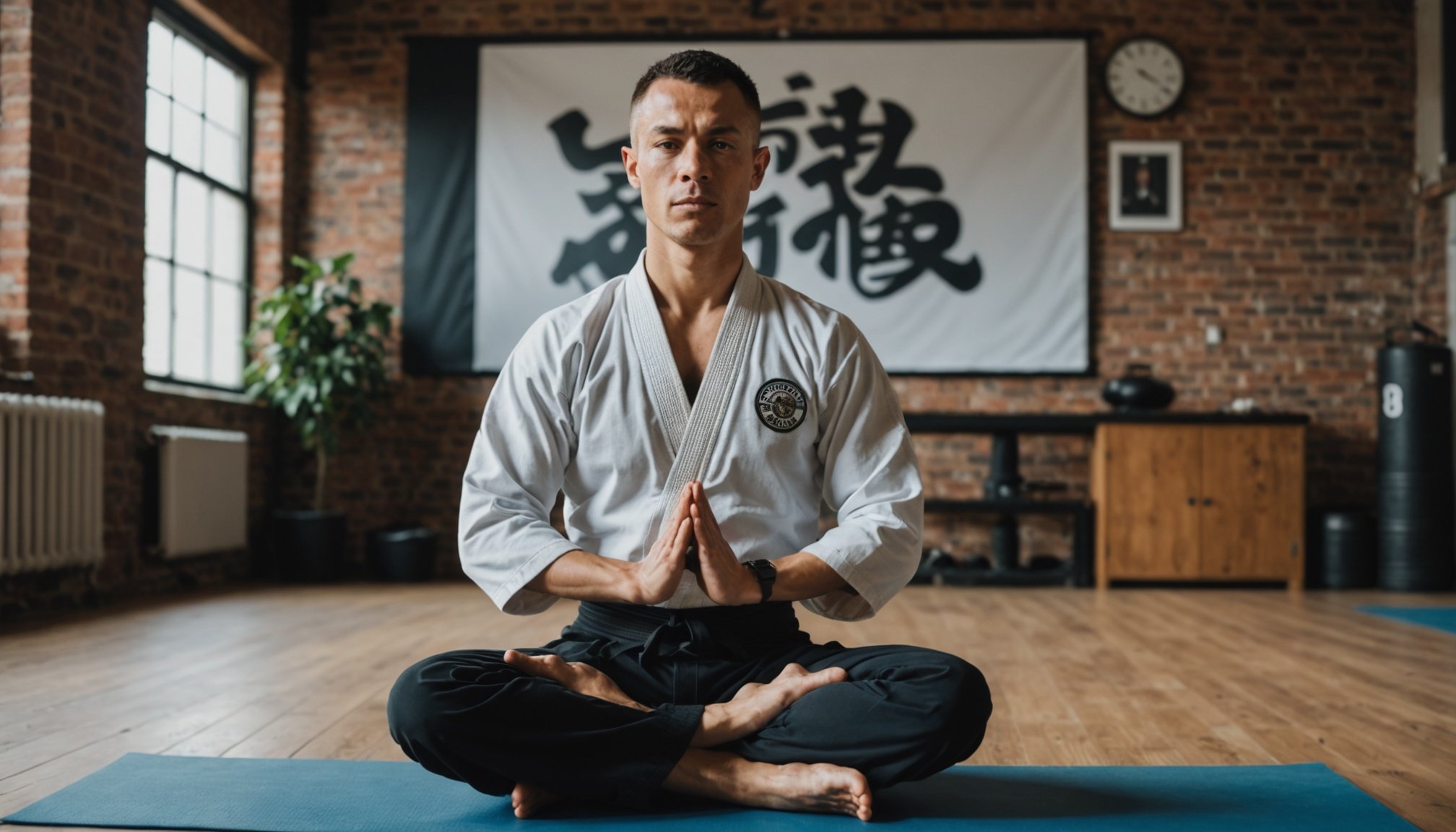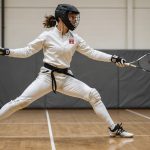Overview of Meditation in Martial Arts Practice
Meditation in martial arts is more than just a practice; it is a cornerstone of tradition. Its historical significance has been monumental, playing a pivotal role in disciplines like Kung Fu and Karate. Meditation serves to enhance focus and offer profound anxiety relief by grounding practitioners in the present moment.
Mindfulness is a vital component in martial arts, as it can elevate performance by fostering heightened awareness. This results from disciplined attention and minimized distractions, crucial for martial artists during training or competition. Through meditation, practitioners often experience mental clarity, which aids in decision-making and strategy.
Topic to read : Empowering uk judo athletes: proven tactical approaches for match preparation success
Moreover, meditation contributes to emotional resilience. It allows practitioners to navigate stress and pressure with a balanced mind. By engaging in regular meditation, martial artists report improvements in concentration, emotional control, and overall mental toughness. These benefits promote a more holistic development, combining physical prowess with mental acuity.
The incorporation of these meditation practices into martial arts underscores their dual impact: refining technical skills and nurturing the mind’s robustness. Consequently, the blend of meditation with martial arts techniques continues to prove indispensable for practitioners seeking comprehensive growth.
Additional reading : Enhancing fencing excellence: how biomechanical analysis transforms techniques for uk athletes
Practical Meditation Techniques Used by UK Martial Artists
Exploring meditation techniques among UK martial artists reveals diverse practices tailored for focus and anxiety management. These techniques form an integral part of training, aiding both mental and physical preparation.
Breathing Techniques
The foundation of many martial arts practices lies in breath control. Techniques such as deep breathing and box breathing are paramount. Deep breathing involves slow, deliberate inhalations and exhalations, fostering relaxation and reducing stress. Box breathing, a structured approach with equal counts for inhaling, holding, exhaling, and pausing, enhances focus. Mastery of these practices aids in anxiety management, allowing practitioners to maintain composure during high-pressure situations.
Visualisation Practices
Imagery plays a critical role in preparing athletes for competition. Visualisation involves mentally rehearsing successful scenarios, boosting confidence and refining technique. Variations include imagining complete match sequences or perfecting specific moves, providing a mental edge. This practice has shown significant influence on performance outcomes, solidifying its place in martial arts training.
Mindfulness Meditation
Introducing mindfulness meditation into martial arts offers clarity and calm. Short routines, often lasting minutes, help athletes centre themselves. Notable UK martial artists attribute mindfulness to enhanced focus techniques and better decision-making under duress, underscoring its utility in a well-rounded training regimen.
Testimonials and Case Studies
In the realm of UK martial arts, personal experiences offer invaluable insight into the transformative benefits of meditation. Numerous practitioners share anecdotes detailing how their meditation journey has significantly impacted their martial arts outcomes. A common narrative includes enhanced performance and heightened focus, attributed to regular meditation practices. Athletes often remark on their improved ability to remain calm and composed during competitive events, thanks to effective anxiety management provided by mindfulness exercises.
For instance, a karate champion from London recounts incorporating deep breathing and visualisation techniques into his daily routine. This led to noticeable improvements in both physical performance and mental clarity. The tools gained through meditation allowed him to navigate high-pressure situations with increased emotional resilience. Another practitioner highlights how meditation sessions helped alleviate pre-competition anxiety and resulted in better strategic decisions during bouts.
These firsthand accounts underscore the role of meditation as an essential component of martial arts training. Several athletes have also shared feedback on how grounding techniques and mindfulness routines sharpen their concentration, reducing instances of self-doubt. Such testimonials reinforce the growing recognition of meditation as a crucial element in achieving and sustaining success across martial arts disciplines.
Scientific Insights on Meditation’s Effects
The intersection of scientific studies and martial arts practice reveals intriguing findings about meditation’s impact on mental health. Numerous meditation research efforts underscore its efficacy in enhancing cognitive functions such as focus. Notably, a significant body of literature documents meditation’s ability to bolster attention span, crucial for martial artists aiming for improved focus during training and competitions.
Mental health benefits associated with meditation also extend to anxiety reduction. In controlled studies, participants engaging in regular meditation sessions exhibited lowered anxiety levels over time. This is attributed to meditation’s capacity to promote relaxation and diminish stress responses in the brain. For martial artists, maintaining a tranquil state of mind is key to high-stakes performance and strategic decision-making.
Furthermore, research delving into neurological changes highlights meditation’s influence on brain structure. Regular practitioners often show increased grey matter density in regions associated with emotional regulation and cognitive flexibility. Such changes fortify mental resilience, allowing athletes to better manage pressure.
Scientific insights continue to validate the use of meditation in martial arts, reiterating its comprehensive role in nurturing both mental and physical aspects of performance.
Tips for Beginner Practitioners
Meditation can seem daunting for beginners, but it doesn’t have to be. Establishing a routine is crucial. Creating a conducive environment is your first step. Choose a quiet, comfortable place where interruptions are minimal. Consistency is key; aim for at least five minutes daily, gradually increasing the duration. Realistic goals are vital for maintaining progress and avoiding burnout.
Setting Up a Meditation Routine
Start by setting a specific time for practice, aligning it with your schedule. Morning sessions can invigorate you for the day, while evening sessions offer relaxation. Busy athletes might keep sessions under 10 minutes, focusing on quality over quantity. Employ a notepad or an app to log insights and track progress. Adjust techniques as you evolve.
Common Pitfalls and How to Avoid Them
Avoid common missteps by maintaining focus. Beginners often face distractions; resolve this by acknowledging them, then gently returning to your breath. Motivation dips can occur—remind yourself of meditation’s long-term benefits. Celebrate small victories and seek community support if needed.
Resources for Further Learning
Enhance your journey with accessible resources. Books such as “Wherever You Go, There You Are” by Jon Kabat-Zinn and apps like Headspace are excellent for guidance. Additionally, several UK martial arts schools provide classes on meditation techniques, enriching your understanding and expanding your practice.





